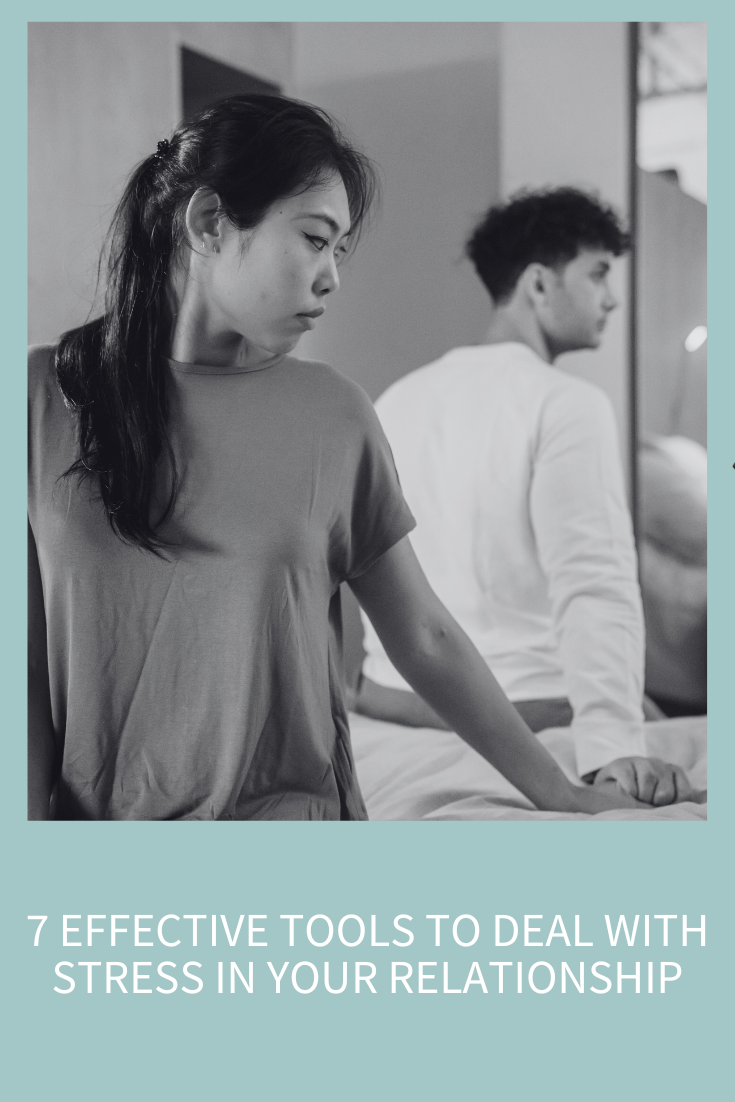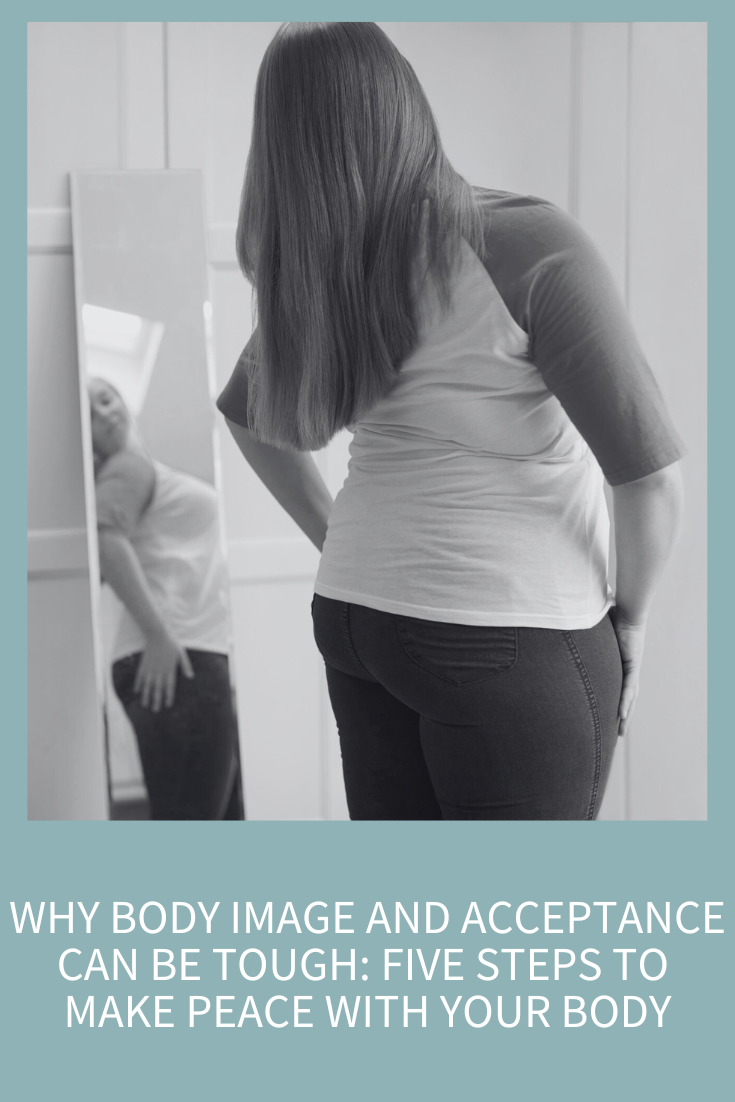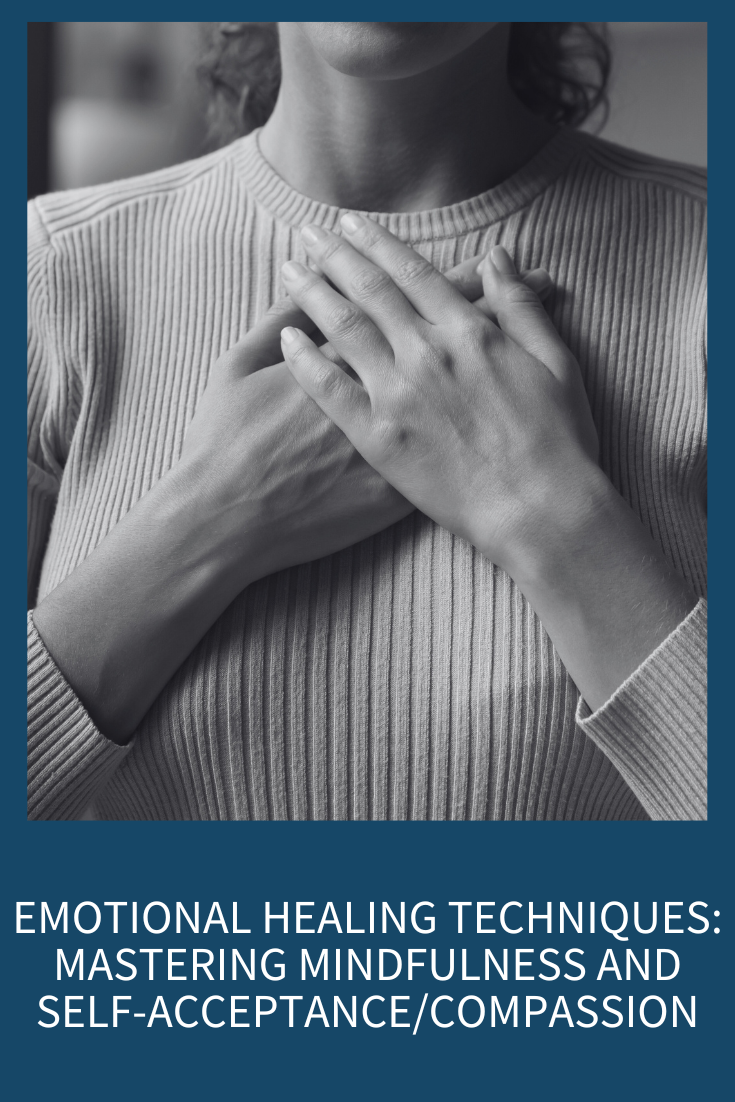
It doesn’t take a genius to know that your relationship is worse off when you or your partner are under stress. A fight with your friend, money woes, that nasty commute, little Jimmy’s newly diagnosed gluten allergy, and those long work days bleed over into your relationship. The research shows that the more frustrations and issues people had outside the home, the more stress they had in their relationship and the less satisfied they felt with it! Stress will kill your relationship faster than almost anything else. But I’m here to help! Today we’ll talk about a new way to look at handling stress and my top seven effective tools to deal with stress in your relationship.
10-minute read
When you’re stressed, you’re more likely to ruminate and lean towards negative thinking. When you’re in this type of mood, your partner gets stressed and is likely to withdraw and isolate. When that happens, you start to withdraw yourself and both of you are left feeling abandoned, misunderstood and unsupported. Not only does stress promote negative thinking, it also inhibits our ability to focus, impairs our ability to think and plan, and affects our judgment and listening skills. When all of these are affected, you know your communication skills go down the drain.
As if this isn’t all enough, when we’re stressed our patience goes down while our irritability goes up. As we become more withdrawn and distracted, we also become less affectionate. We become more narrowly focused on ourselves and our own survival when we’re anxious so we start competing with our partner for attention, time, money and other resources. We forget we’re on the same team. Before long, your partner becomes the enemy.
Stress and Your Brain
Famed stress researcher and author Dr. Robert M. Sapolsky of Stanford University points out that chronic stress also affects our nervous system. It actually kills neurons in the hippocampus, which is a part of the brain’s Limbic System linked to memory and learning. Not only does it kill neurons, but it also weakens the connections between the surviving ones, making it difficult for them to communicate, which impairs the formation and retrieval of long-term memory.
At the same time, chronic stress does the opposite in another part of the Limbic System called the amygdala, which is the seat of fear in your brain. While stress is busy shrinking and destroying things in the hippocampus, it’s actually feeding and expanding the amygdala! This is not good! It creates what we call a “hot” amygdala, which basically means that the fear part of your brain is hyper-reactive, lit up and acts like a hysterical teenager!
So, when you’re stressed, you’ll notice negative stuff way more and you’re less able to stop yourself from reacting badly to those things. You end up impatient and not giving your partner the benefit of the doubt. You end up more irritable and hostile, so arguments are way more likely to happen. This is when little “nothing” things become huge arguments.
All of this is also the reason why your libido has left the building and your sex life has likely gone out the window.
Instead of Fight, Flight, or Freeze, think Tend and Befriend:
When your brain’s amygdala is turned on, it ignites your “Fight, Flight or Freeze” response. This is when you’ll either argue with your partner, avoid conflict at all costs or become very passive, procrastinate and do nothing at all. All three of these responses leave us feeling resentful, irritated, numb, overwhelmed or hopeless. The stress never seems to go away, and you end up in a cycle of dissatisfaction and feeling stuck.
But there are other brain systems you can activate to turn this around. In her book, The Upside of Stress, researcher and author Kelly McGonigal offers another perspective on stress and relationships. Her research supports that stress doesn’t have to lead to only the fight, flight or freeze response. She introduces something called the “Tend and Befriend” response because stress can also activate brain systems that help us connect with other people.
Yup. It turns out that stress can also unleash the instinct to protect your tribe. In her book, McGonigal says, “This instinct sometimes expresses itself differently in men than it does in women, but the two sexes share it. In times of stress, both men and women have been shown to become more trusting, generous, and willing to risk their own well-being to protect others.”
Why would stress lead to support and caring?
From an evolutionary point of view, the Tend and Befriend response evolved to make sure we protected our children. The critical thing a parent needs is the willingness to put their own lives at risk for their offspring (and we do). We need to be able to reduce fear and increase hope for survival.
The best way to get a handle of the Tend and Befriend response is to talk about how it affects three particular areas of your brain. This is how McGonigal lays it out:
First, there’s what she calls the social caregiving system of the brain. This area is controlled by oxytocin, which you’ve probably heard about before in relation to childbirth. It’s a hormone (and neurotransmitter) that’s released to help us bond with those screaming, annoying babies. Whenever this system is activated, you want to bond or be close with other people. You feel more connection, empathy and trust with those around you. And here’s the super important kicker: this network also hampers your brain’s fear centers! Oxytocin is like taking a little Valium – it eases stress and instills good feelings.
The second way your brain is affected is through the reward system, which releases the neurotransmitter dopamine. When your reward system is activated, it increases your motivation while, once again, tamping down your fear response. McGonigal says, “When your stress response includes a rush of dopamine, you feel optimistic about your ability to do something meaningful. Dopamine also primes the brain for physical action, making sure you don’t freeze under pressure.”
Lastly, there’s the attunement system, which is propelled by the neurotransmitter serotonin. When this system turns on, you get a perception, intuition, and self-control boost. This makes it easier to understand what’s really important and needed (critical when you’re having a life-or-death argument about toilet seat positioning). If you’re thinking more clearly in these ways, your reactions, words and behaviors will be more moderate and thoughtful, which leads to a better chance of connection and resolution! McGonigal says, “In other words, a tend-and-befriend response makes you social, brave, and smart. It provides both the courage and hope we need to propel us into action and the awareness to act skillfully.”
Here’s what’s super cool. Although this whole Tend and Befriend response evolved to make sure we protect our kids, anytime you help someone else, it activates it! When you love and support your partner (or anyone), it triggers this biology of bravery and creates hope! As you know, when you’re stressed and feeling at odds in your relationship, there’s almost no more valuable commodity than hope. Instead of trying to withdraw and escape, you want to connect and lean in. That’s where the hope is.
Any time you’re feeling hopeless, frustrated, or helpless in your relationship, doing something to actively support your partner will help motivate you and help you be more optimistic about your future!
In studies (that have included gay and lesbian couples in case you thought this only applied to straight folk), they found that the amount of support individuals received from their partners directly related to how satisfied they were with their relationships. So, for couples who had lots of stress, it was the feeling of support that could make or break the relationship. In the end, when they truly need us, we must show our partners that we’ll be there for them, no matter what.
The 7 things to do if there’s stress in your coupledom:
1. Promote relaxation! You’ve got to advocate for stress relief. This could mean scheduling a couples’ massage, giving your partner some mind-blowing orgasm of choice, exercise, a night out at a comedy show, a mani/pedi, or encouraging your partner to relax in some way they like (going out with the ladies for a day of wine tasting or hanging out with the guys for a few hours of soccer). Remember that your partner’s stress is your stress; you’re a shared resource! Helping them relax means helping yourself.
Avoid mistakes that I see so many couples make! Watch my TEDx talk to find out the Real Reason Relationships fail.
2. Make it a priority to get good sleep (at least one of you)! Get a babysitter to put both kids to bed and just stay in your room all night (the kids won’t even know you haven’t left). Getting solid sleep will help increase your willpower battery which is the best preventative measure you can have for feeling less stress.
Did you know that getting a good night’s sleep impacts all your relationships? Learn more about the benefits and how sleep makes your relationships great.
3. Reprioritize. What’s all this craziness for? Maybe it’s time to reprioritize what you’re doing and how you’re “living.” If you’re stressed all the time, with no end in sight, I wouldn’t call it living. If it’s short term, with an end date, that’s different (new baby, remodeling your kitchen; these all end). If it’s ongoing, it’s time to reassess and make some big decisions. If you had a year to live, is this what you’d be doing? Get things off your plate and add resources as needed.
4. Say yes first. Don’t deny or dismiss stress, no matter how unreasonable. Make it a point to always say “yes” or agree first. You can get to problem-solving or planning later. Always provide a reassuring and optimistic attitude.
5. Ask for help. Let your partner know you’re struggling. Don’t think, “I’ll just leave my problems at work.” This is an opportunity to share and be vulnerable with your partner, which can lead to more intimacy and connection, as well as a thoughtful ear that might be able to help!
6. Increase your positive emotions. No matter what the stress is about, having more positive emotions in your life will help combat the negative effects of stress. Cultivating feelings like gratitude, joy, fun/laughter, contentment, and love is one of your best ways to deal with stress. Listen to an inspiring song, podcast or book during your commute, have everyone share a “win” at dinner, take a walk after dinner, play a fun game with your friends or family, take that pottery class you’ve been putting off, join a team, or write in a gratitude journal daily. Stress makes us focus on the negative, so you can help combat it by actively deciding to focus on the positive instead.
Use this easy-to-adopt five-step morning routine to start your day right and increase your productivity and happiness.
7. Get Perspective. Remember that you feel the way you think. If you want to stop feeling stressed, you need to stop thinking stressful thoughts. Remember William James’ famous quote: “The greatest weapon against stress is our ability to choose one thought over another.”
Can’t let go of things that bother you? Use the simple technique called Cognitive Reframing to move from anxious and upset to serene and content.
Research and Resources for Seven Effective Tools to Deal with Stress in Your Relationship
The Real Reason Relationships Fail
Why Sleep is The Secret to Great Relationships
Abby’s Step-by-Step Guide to Starting Your Day Right
How to Stop Overthinking and Let Things Go That Bother You
Why Zebras Don’t Get Ulcers by Robert M. Sapolsky
The Upside of Stress: Why Stress Is Good for You, and How to Get Good at It by Kelly McGonigal








